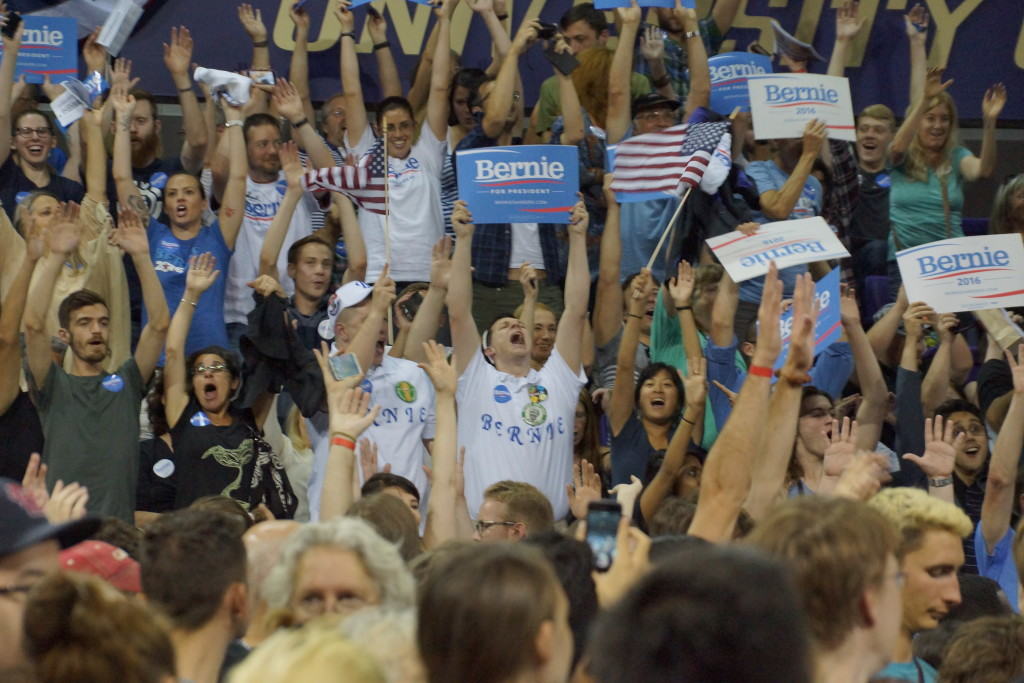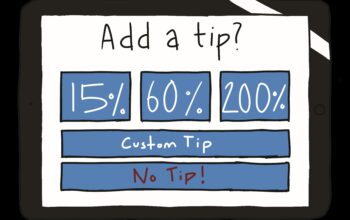Bernie Sanders knows his audience. Over the course of his presidential campaign, the 74-year-old Vermont senator seems to have wholly captured the youth vote from Hillary Clinton (one of this election season’s many unexpected twists). His supporters “feel the Bern” in Sanders’ message of radical economic justice, his criticism of a political system bent towards the powerful. He is the candidate for the Occupy generation, dramatizing his campaign with calls for a “political revolution.”
Sanders’ power lies in his ability to stimulate political passion among one of the world’s most classically unmotivated demographics: young adults. A year ago, a Sanders’ victory might have sounded ridiculous. Today, Sanders has handily won the New Hampshire primary with 60% of votes, and lost Iowa by a measly .3%. In the heat of such momentum, it becomes easier to imagine a future where Sanders truly accomplishes the impossible and usurps Clinton’s reserved spot as democratic nominee in 2016. As one of the young voters Bernie is targeting with lavish words of free college tuition and political revolutions, it’s a thought I personally would like to buy into.

So let’s indulge. Picture Bernie rolling through the rest of the primaries, picking up delegates like Halloween candy (pretend that superdelegate support actually aligns with the popular vote), and eventually achieving the majority he needs for a democratic nomination. Then comes a painful general election, where the full wrath of the GOP will be turned towards the weak links in Bernie’s public image. They painted Obama as a socialist in 2008 due to his liberal economic policies (John McCain and Sarah Palin used this rhetoric repeatedly, calling Obama’s economic approach “a lot like socialism”). I can only imagine the glee with which they’d dig into Bernie’s real-life socialism in pursuit of a new McCarthyism. Assuming Bernie can triumph over their attacks, our country’s enduring love of moderate politics, and whoever the Republican nominee ends up being, it’s not completely unrealistic that we’ll have a President Sanders’ in the Oval Office come next January.
I can only imagine the glee with which [Republicans] would dig into Bernie’s real-life socialism in pursuit of a new McCarthyism.
But then what? Sanders has made some lofty promises to his supporters, from single-payer health care to debt-free tuition. And he’s even meticulously described how he would pay for such health care – his plan involves increasing federal spending by $28 trillion, partially covered by $14 trillion in new taxes. If Americans hate one thing, it’s new taxes. Obamacare, which was never intended to be as far left as Sanders’ plan, took years of careful maneuvering to get passed, and Obama still ended up making huge concessions. It’d be nothing less than a political miracle for a single payer health system like Sanders to pass successfully through our gridlocked, Republican-dominated Congress. When it comes down to it, America was not built for the revolution Sanders has pinned his brand on. Our founders made sure power would be distilled across the branches of government – America was never supposed to be able to change drastically overnight. The President can propose bills, and he can veto Congressional decisions, but he needs institutional support to enact his agenda.
So far, Sanders has not talked about how he’d get legislation passed. There is no guarantee he’d be willing to compromise (probably a lot) to accomplish his goals. His rhetoric is consistently idealistic, which is good for inspiring voters but not particularly useful in politics, which requires a level of pragmatism. It doesn’t help that Sanders’ legislative record is more lackluster than lengthy; out of 353 bills he’s proposed on the Senate floor, only three have passed successfully into law.
His rhetoric is consistently idealistic, which is good for inspiring voters but not particularly useful in politics
His supporters have place their trust in his belief that with enough grassroots organization, everyday liberals can stage a coup on Congress and take it back for the Democrats. Sanders’ would be very, very lucky to come into the White House with a Democratic majority in Congress – unfortunately, it’s incredibly unlikely and a lot to bet on chance. The reality is we’re living in an enormously divided political culture, where even Obama’s moderate proposals are fought in the Republican-majority House and Senate. I question whether it’s realistic to believe that electing Bernie Sanders (who’d probably be the most stringently-left president in American history) would cure this gridlock.
This is the first election that I (and others my age) will get to vote in. According to what I’ve read, it’s also an election where old rules don’t seem to apply. Perhaps we will see a President Sanders, or a President Trump, and political scientists will be scratching their heads for the next four years wondering what happened to the American tradition of moderacy. Perhaps they will accomplish unprecedented political feats, unite new coalitions, end partisanship or divide it even further. Ultimately, no one can truly predict what will happen over the next six months.
Honestly, I want to vote for Bernie – I align with the majority of his views, and he carries an authenticity that I don’t see in the more politically-curated Hillary Clinton. But I can’t in good conscious pledge my vote to him until he lays out a cohesive plan to achieve what he’s promising. I want a president that will take a compromise over nothing at all, and I want results more than I want the fantasy of a revolution.
Featured Photo: Sanders’ exciting rhetoric may be enough to fire up the voters, but what about the rest of the government? Photo by Conor Courtney



